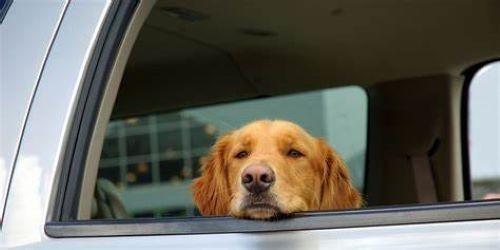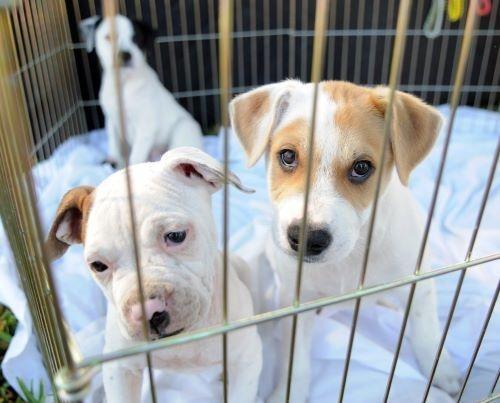Spain's Animal Welfare Act - March 2023
Mandatory Dog Insurance. POSTPONED. The new law requires all dog owners to secure public liability insurance for each pet. This obligation was expected to come into effect on September 29th, 2023, but has now been POSTPONED.
Article 30 of the legislation explicitly states that individuals who own dogs must engage and sustain civil liability insurance coverage for potential third-party damages throughout the animal’s lifespan.
Individuals with existing home contents insurance policies may already have some degree of coverage for their pets. However, come September, another requirement will be necessary – dogs included in an insurance policy must have a microchip, which is also law.
You will find that each town hall and autonomous region has it’s own regulations on dog ownership.
Dog ownership courses in Spain -POSTPONED.
The new law adds a point that has caused much controversy: all people who own or want to own a dog must take a free course, regardless of their breed or physical characteristics, in advance or, if already owned, within a maximum period of two years from the entry into force of the new regulation.
According to the BOE, the course in question must be carried out by all those people who "choose to be owners of dogs" and by those who are already owners, who will have a period of two years from September 29th, 2023 to complete it. The training course will have an "indefinite validity" and its accreditation must be accompanied by civil liability insurance for damages to third parties "that includes in its coverage the persons responsible for the animal, for an amount of sufficient amount to cover the possible derived expenses, which will be established by regulation."
The course will consist of three parts: one of care and veterinary, another of animal welfare and another of legislation, more information will follow shortly.
Dangerous dogs in Spain with the Animal Welfare Law 2023
Until now, the dogs considered as potentially dangerous in Spain, based on their behaviour and physical characteristics, were as follows:
Pit Bull Terrier, Staffordshire Bull Terrier, American Staffodshire Terrier, Rottweiler, Dogo Argentino, Fila Brasileiro, Tosa Inu, Akita Inu, Doberman, Bullmastiff, Dogue de Bordeaux, Neapolitan Mastiff, Boxer, Dogo Canario (Presa Canario), Bull Terrier, Tibetan Mastiff.
However, when the Animal Welfare Act 2023 comes into force, the term "potentially dangerous dog" will be changed to "special handling dog". and their classification will be determined through a sociability assessment according to their behaviour.
If, after testing, the dog is classified as a "special handling dog", owners must follow certain security measures to prevent assaults or escapes.
These are the infractions and sanctions provided for in the new regulations, with up to 18 months in prison.
Fines will range from 500 to 10,000€ for minor infractions and 10,001 to 50,000€ for serious and from 50,001 to 200,000€ for very serious ones.
Actions involving an injury or death of an animal may be punished with prison sentences, ranging from 3 to 12 months if the animal does not die and from 6 to 18 months if it does. Actions involving an injury or death of an animal may be punished with prison sentences, ranging from 3 to 12 months if the animal does not die, and from 6 to 18 months if it dies.
Minor and serious infringements
Here is a list of the infractions provided for in the new law.
They will be minor infractions (from 500 to 10,000 euros fine):
The law considers a minor infraction "any conduct that, by action or omission and without causing physical damage or alterations of its behaviour to the animal, entails the non-observance of prohibitions, care or obligations established by law or those derived from the breach of administrative responsibilities by the owners or responsible for the animal." This includes:
- Lack of communication in the loss or removal of an animal.
- Allow animals to circulate in public spaces without supervision, as well as leave them on a leash.
- No sterilization of animals with uncontrolled access to other animals.
- Leaving animals unsupervised in conditions that may be harmful to their health, such as inside a closed vehicle; or at home for more than 24 hours, in the case of a dog, and 72 hours in the case of cats.

Serious infractions, fines between €10,001 and €50,000 even if they do not involve physical harm to the animal:
Serious infractions will be considered all those that involve damage or suffering to the animal, that do not cause death or serious sequelae, and the violation of all the obligations and prohibitions required by the new legislation:
- Not correctly identifying the animal.
- The misuse of aggressive or violent methods in animal education.
- The administration of substances that harm animals or alter their behaviour that are not prescribed by a veterinarian and have a therapeutic purpose.
- Modifying or mutilating the body of an animal without authorization.
- Use animals as an object of reward, prize, raffle, promotion or advertising claim that has not been authorized.
- Breed and/or trade with non-native wild animals.
- The shipment, not provided for by law, of live animals.
- The removal, relocation or displacement of community cats in situations other than those allowed in this law.
- The abandonment of one or more animals: includes not picking up the animal from residences, veterinarians or other similar establishments in which they had previously deposited them, despite not entailing risk to the animal.
- The theft, theft or misappropriation of an animal.
- Feed with offal from other animals that have not passed the appropriate health controls.
- Permanently keep dogs or cats on terraces, balconies, rooftops, storage rooms, basements, patios and similar or vehicles.
- Committing more than one minor infraction within 3 years.
Very serious infringements (50,001 to 200,000 euros)
All the infractions considered very serious included in the law are:
- Breach of obligations and prohibitions required by law when the death of the animal occurs, provided that it does not constitute a crime, as well as the unauthorized slaughter of animals.
- The assisted death of animals with inadequate means or by an unqualified person.
- The training and use of animals to fight and quarrel with other animals or people.
- The use of pets for human consumption.
- Kill community cats outside the cases authorized in this law.
- The breeding, trade or exhibition of animals for commercial purposes by unauthorized persons or the sale of dogs, cats and ferrets in pet shops.
- The use of animals in prohibited activities, in particular in cultural and festive activities, in mechanical attractions, fairground carousels, as well as the use of wildlife species in circus shows.
- The use of genetic selection of companion animals that entails deterioration for their health.
- The commission of more than one serious infringement within three years, when it has been declared by a final administrative decision.

Other measures: closures, suspensions and disqualifications
The fines in question may come from the hand of other 'accessory sanctions' that may involve:
- Intervention of the animal and its transmission to an animal protection centre or to the one determined by the competent authority.
- Withdrawal of weapons and licenses, and confiscation of the means used to perpetuate the infringement.
- Temporary suspension of licenses, authorizations or permits that may be up to six years for very serious repeat infractions and up to two years for serious infractions.
- Temporary closure of premises and establishments that may even be definitive if there are repeat infringements.
- Disqualification for the exercise of activities related to animals, and possession with animals, for a maximum period of five years for serious infractions and five to ten years for very serious
- Withdrawal of subsidies or aid in the field of this law.
- The obligation to carry out re-education or training courses in welfare, animal protection and animal rights and/or work for the benefit of the
Keep in mind that, in addition, actions involving an injury or death of an animal may be punished with prison sentences, ranging from 3 to 12 months if the animal does not die, and from 6 to 18 months if it dies.
Please note the above has been translated from Spanish to English, so some detail may be slightly lost in translation, read the original article here.



